More and more students are trying QuillBot to paraphrase their essays, assignments, and research papers. It’s fast, it sounds human, and it feels like a smart shortcut.
But here’s the problem. AI detectors like Turnitin and Winston AI can detect AI writing tools pretty easily. Schools and universities are cracking down on AI-generated and AI-paraphrased content harder than ever. And that raises some serious questions…
👉 Can QuillBot Be Detected by Turnitin or AI Detectors?
👉 Can Turnitin flag your work — even if it’s “paraphrased”?
👉 Are you putting yourself at risk by using QuillBot in 2025?
In this post, we’ll break it all down — from real detection tests to what AI checkers look for. By the end, you’ll know whether using QuillBot is safe… or a silent academic trap.
What is QuillBot?
QuillBot is an AI writing tool, focusing mainly on students who have difficulty with writing and research abilities.
It has many features, but the most common ones are paraphrasing, grammar checker, and citation generator.
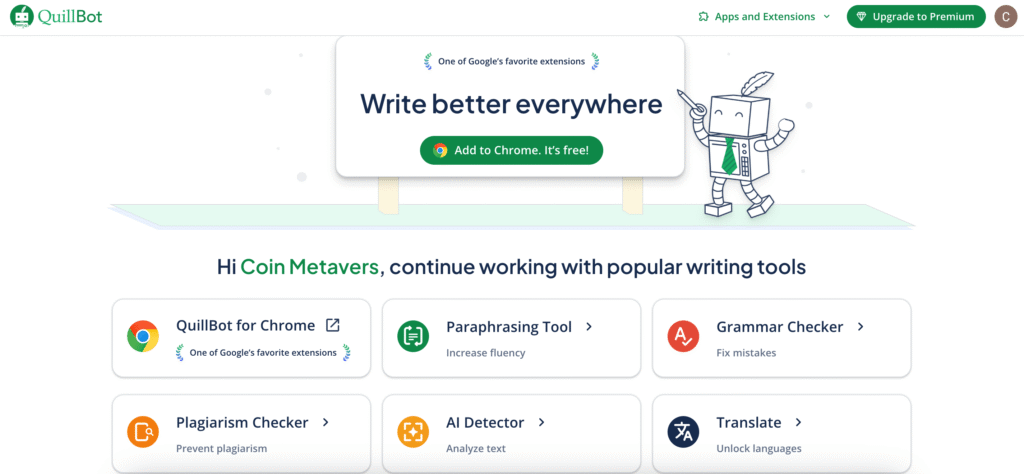
When you paraphrase, you have many options for the modes you can use. For example, you can paraphrase your text in Formal, Simple, Academic, Creative, and many more tones.
You can also adjust how many synonyms you can rephrase. The fewer synonyms you use, the more accurate your text will be.
For the in-depth review of QuillBot, with its features, student discount pricing, and more, check out our review here.
What is Turnitin?
If you’ve ever submitted a paper in school or college, chances are you’ve heard your teacher mention Turnitin. But what is it, exactly?
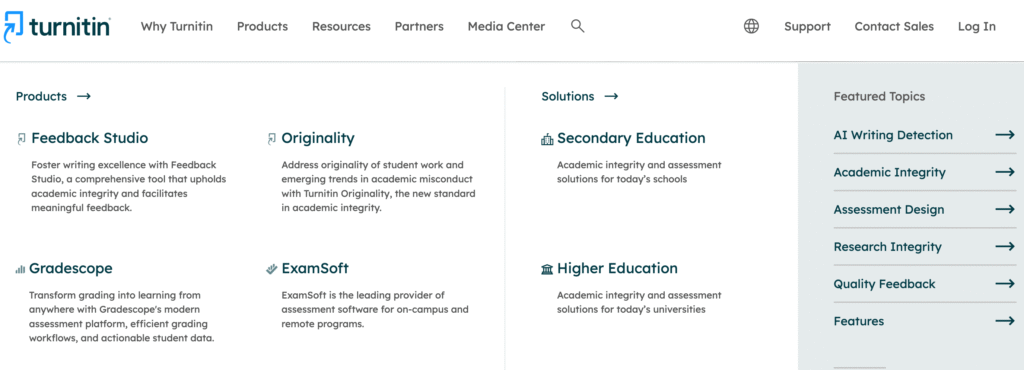
Turnitin is an online tool universities use to check your writing for plagiarism. In simple words, it compares your work with billions of sources—like websites, books, and other students’ papers—to see if anything matches too closely.
But don’t worry, just using a quote or similar wording doesn’t mean automatically that you’re in trouble. Turnitin helps teachers spot copy-paste issues, but it also teaches students how to write in their own words.
Can AI Detectors Identify QuillBot Text?
What most students do is use other writing tools like ChatGPT, generate text, and then go to Quillbot and try to paraphrase the text from ChatGPT.
We put it to the test, so let’s see if AI detectors like Winston AI can detect the text.
First, this is what we asked ChatGPT to write us.
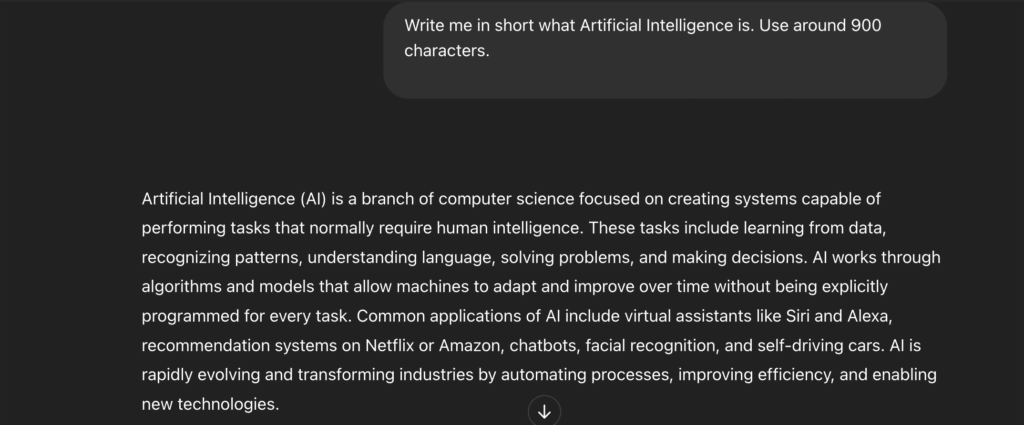
The next step is to paste the text from ChatGPT to Winston AI and check if it can detect it as AI.
And this is what Winston AI shows. It is correct and shows a human score of 1%
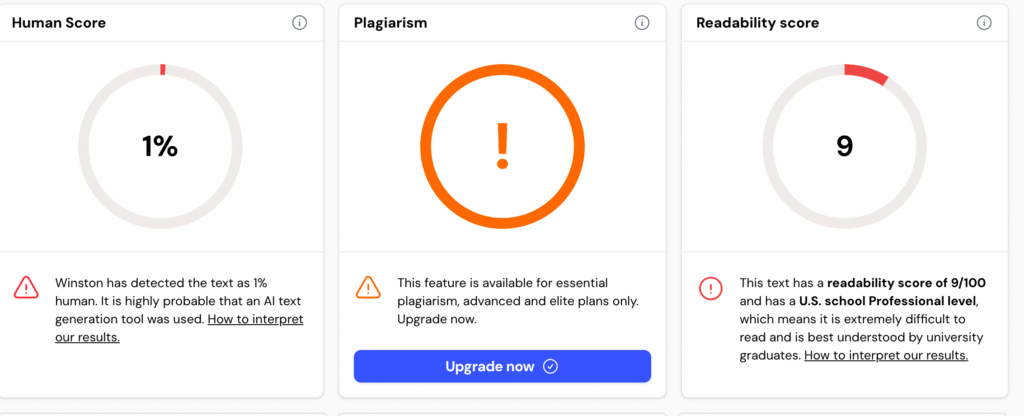
Now let’s try rephrasing the same text to QuillBot, and then paste it again in Winston AI.
I won’t show you the paste to QuillBot, to make the process faster.
This is what Winston AI shows again. You can see that even if you paraphrase the text from ChatGPT to QuillBot, your text is still detected as 100% AI.
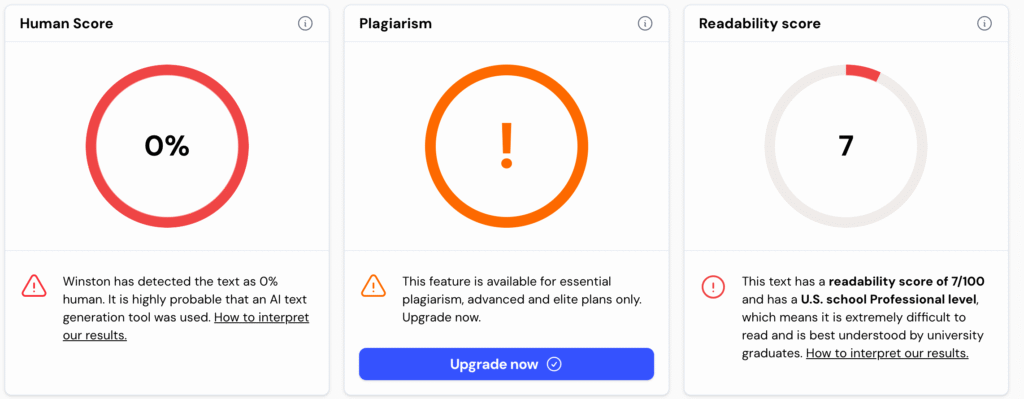
Even the Quillbot AI detection shows that the paraphrased text is 100%. So, how do you use QuillBot safely?

Can Turnitin Detect QuillBot?
Yes, Turnitin can detect QuillBot. Turnitin is using advanced algorithms that go beyond simple text matching. It not only uses AI to find paraphrasing, but it can also notice small changes in how sentences are written and the words used by checking your work against a large collection of papers, websites, and past assignments.
This combination of pattern recognition and semantic analysis helps flag reworded or paraphrased content that closely mirrors sources.
Instances where Turnitin flagged content generated by QuillBot
There have been multiple reports of Turnitin marking papers that heavily use QuillBot’s paraphrasing features.
In some cases, when students rely too much on QuillBot without adding original analysis or restructuring, Turnitin’s similarity score rises significantly.
How to ethically avoid detection when using paraphrasing tools for rewriting:
- Use paraphrasing tools as a starting point — then revise the text yourself to add your voice and critical thinking.
- Understand the original material before rewriting, so you can re-express ideas instead of just swapping words.
- Combine multiple sources and insights rather than paraphrasing from a single passage.
- Cite your sources properly to acknowledge where ideas come from, even if you rephrase the content.
- Avoid overusing automated paraphrasing tools; use them as aids, not shortcuts.
Is QuillBot Safe to Use for Students?
Yes, QuillBot is safe to use, as long as you’re using it the right way.
If you are using QuillBot to fix your grammar, rewrite clunky sentences, or help improve your writing style, you will be fine. It can help you a lot when you’re stuck on how to rephrase something or just want your writing to sound clearer.
But if you are trying to use QuillBot to cheat, like copying someone else’s work and running it through QuillBot to trick plagiarism detectors, that’s where you can get in trouble. Most universities and schools nowadays can tell if a sentence has been heavily paraphrased or altered by an AI tool.
Think QuillBot is ike spellcheck on steroids. It’s there to help you become a better writer, not to cover up plagiarism.
Bottom line: Will you get in trouble for using QuillBot? Not if you’re using it for legit reasons. Just stay on the right side of things, and you’re good to go.
How to Use QuillBot Safely (2025 Tips)
- ✅ Use it to improve grammar, clarity, and sentence flow — not to cheat.
- 🧠 Always read and edit the output. Make it sound like *you*, not a machine.
- 📚 Learn from how QuillBot rewrites your text — treat it as a writing coach.
- 🚫 Don’t rely on it to rewrite entire essays to avoid plagiarism detectors.
- 📝 Use it alongside your own thoughts, ideas, and original structure.
The Difference Between Paraphrasing and Plagiarism
Paraphrasing means putting someone else’s ideas into your own words.
It’s a way to explain information differently while keeping the original meaning. When done correctly, paraphrasing shows that you understand the material and can share it freshly.
Plagiarism, on the other hand, happens when you copy someone else’s words or ideas without giving them credit.
Even if you change a few words but keep the original structure or meaning without citing the source, it is still plagiarism. This is because you’re presenting someone else’s work as your own.
Quillbot Alternatives and How They Face Turnitin
While Quillbot is a solid paraphrasing tool, it’s not the only option out there.
Different tools can be different in how well they can avoid detection by plagiarism checkers like Turnitin. Understanding their strengths and weaknesses can help you choose the right tool.
Grammarly Rewrite Tool
Grammarly’s rewrite and suggestions can help you improve sentence flow and grammar. When used carefully, it poses a low risk of being flagged by Turnitin, especially if you only apply small changes to make your writing clearer.
However, if you relying on Grammarly to rewrite large parts without adding your input or citations may still get caught.
SnipBot
Spinbot automatically swaps words with synonyms but often keeps the original sentence structure. This can create awkward or unnatural phrasing that plagiarism checkers easily spot. Because of this, Spinbot has a high risk of being flagged by Turnitin and is generally not recommended for academic writing.
Wordtune
Wordtune uses AI to suggest rewrites that improve your tone and clarity. It generally produces more natural-sounding text than Spinbot but still requires careful human editing. Turnitin may detect similarities if the rewritten content closely follows the original text’s structure.
Jasper AI and ChatGPT
Jasper AI and ChatGPT can generate or paraphrase text based on your prompts. These tools can be powerful if you correctly use them. The risk of Turnitin detection depends largely on how you use it. If you rely on AI to fully rewrite without understanding or citing sources, you risk plagiarism. But if you are using these tools to draft ideas and then add your own voice and citations, the detection risk is lower.
Questions About Using QuillBot
Can you get caught plagiarizing using QuillBot?
Yes, if you use QuillBot without proper citation or just swap words without understanding, plagiarism detection tools like Turnitin can still flag your work.
Can anything detect QuillBot?
While there’s no tool made specifically to detect QuillBot, plagiarism checkers can notice patterns and similarities in rewritten content, making detection possible.
Can teachers tell if you use QuillBot?
Teachers may not see QuillBot directly, but they can recognize oddly phrased sentences or inconsistent writing styles, which might raise suspicion.
Will I get in trouble for using QuillBot?
You might if you use it to avoid doing your own work or don’t cite your sources. Using it as a learning aid and giving credit is less likely to cause issues.










